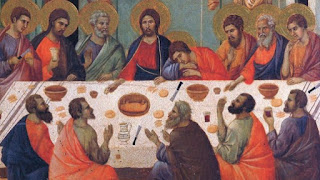Anathema Means to Curse: A Brief Outline of the Concept “Curse” in English, Hebrew, and Greek

Anathema Means to Curse: A Brief Outline of the Concept “Curse” in English, Hebrew, and Greek English (verb) - 1. To utter a wish of evil against one; to imprecate evil upon; to call for mischief or injury to fall upon; to execrate. 2. To injure; to subject to evil; to vex, harass or torment with great calamities. 3. To devote to evil. To utter imprecations; to affirm or deny with imprecations of divine vengeance. <https://webstersdictionary1828.com/Dictionary/curse> English (noun) - 1. Malediction; the expression of a wish of evil to another. 2. Imprecation of evil. 3. Affliction; torment; great vexation. 4. Condemnation; sentence of divine vengeance on sinners. 5. Denunciation of evil. <https://webstersdictionary1828.com/Dictionary/curse> Also, “the expression of a wish that misfortune, evil, doom, etc., befall a person, group, etc. Synonyms: malediction, fulmination, execration, imprecation” “the act of reciting such a formula; an evil that has bee...




